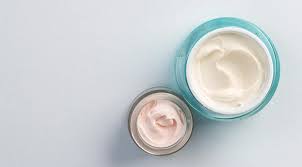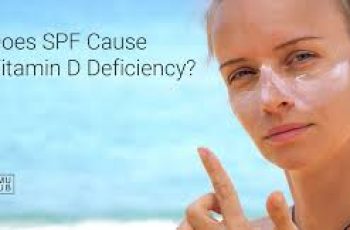
Cholesterol in Skincare: What You Need to Know About This Essential Lipid
When it comes to skincare, many of us have heard of popular ingredients like hyaluronic acid, retinol, or vitamin C, but cholesterol may not be a common mention.
While it’s often associated with heart health and a high-fat diet, cholesterol plays an important role in skin health too.
It’s an essential component of the skin’s natural barrier, which helps maintain hydration and protects against environmental aggressors.
But is cholesterol something you should actively seek in your skincare routine? Let’s explore its role, benefits, safety, and potential concerns.
What is Cholesterol in Skincare?
Cholesterol is a naturally occurring lipid (fat) found in animal cells and blood. In the context of skincare, it’s a critical element of the skin barrier.
The skin barrier is a complex structure that regulates hydration, protects against environmental pollutants, and prevents harmful microorganisms from penetrating the skin.
Cholesterol, along with ceramides and fatty acids, makes up the majority of the skin’s barrier.
In fact, about 25% to 50% of the lipids in your skin are made up of cholesterol, depending on your skin type.
The outermost layer of the skin, called the stratum corneum, contains these lipids that must be in the right balance to maintain a healthy skin barrier.
Studies have shown that cholesterol is indispensable in forming and maintaining this barrier. Without it, the skin would not be able to protect itself or retain moisture as effectively.
How Does Cholesterol Benefit the Skin?
1. Supports Skin Barrier Function
The primary benefit of cholesterol in skincare is its role in maintaining a healthy skin barrier.
The skin’s lipid matrix is made up of cholesterol, ceramides, and free fatty acids, all of which work together to retain moisture and block harmful bacteria and irritants.
When this barrier is compromised, it can lead to dehydration, sensitivity, and an increase in skin conditions like eczema and acne.
Cholesterol, by helping maintain the barrier, also prevents trans-epidermal water loss (TEWL), which means it helps lock moisture into the skin.
This makes cholesterol a key ingredient in moisturizers designed to combat dry skin and restore hydration.
2. Helps with Skin Hydration
When cholesterol is included in moisturizers, it can help deliver a rich, dewy feel to the skin. This texture is a sign of significant hydration and barrier repair.
For people with dry or compromised skin, this is especially beneficial because it helps create a moisture seal that prevents further dehydration.
3. Improves Skin’s Resistance to Irritants
A healthy skin barrier is much better at keeping allergens, irritants, and bacteria out.
Since cholesterol helps maintain the integrity of this barrier, using skincare products that contain it can improve the skin’s ability to defend itself against harmful external elements.
This is particularly important for people with sensitive skin or conditions like eczema.
4. Prevents Skin Aging
Hydrated skin is less likely to absorb water-soluble ingredients like sugars, which can cause glycation, a process that damages collagen and leads to wrinkles.
By preventing this absorption, cholesterol indirectly helps maintain a more youthful appearance.
What Is the Correct Ratio of Cholesterol in Skincare?
While cholesterol is crucial for maintaining the skin barrier, the most effective skincare formulations contain a balanced ratio of cholesterol, ceramides, and free fatty acids.
The ideal lipid balance is 1:1:1 (fatty acids: cholesterol: ceramides). These three lipid components work together to keep the skin’s barrier intact and functioning properly.
However, products that contain only cholesterol without the right amount of ceramides or fatty acids can cause damage to the skin’s lipid matrix.
This imbalance can lead to increased dryness or further disruption of the skin barrier.
For people with conditions like eczema or a severely impaired skin barrier, it is especially important to use products that include all three of these key lipids.
Key Point:
Cholesterol alone can be less effective for barrier repair if it isn’t used in combination with ceramides and fatty acids.
Is Cholesterol Safe in Skincare?
Yes, cholesterol is safe to use in skincare products. The Cosmetic Ingredient Review Panel has evaluated its safety in cosmetics and has deemed it appropriate for topical use.
When used topically, cholesterol does not affect your serum cholesterol levels—so people with high cholesterol can safely use it in their skincare routine.
In addition, the Environmental Working Group (EWG) rates cholesterol as a 1 (safe) on their scale, which means it poses little risk when used in skincare products.
Are There Any Side Effects of Cholesterol in Skincare?
For the most part, cholesterol is well-tolerated by the skin. However, the main concern associated with using cholesterol in skincare products arises when the lipid balance is disrupted.
If a moisturizer contains only cholesterol and lacks ceramides or fatty acids, it can throw off the skin’s natural lipid composition, leading to potential issues like dryness, irritation, or further damage to the skin barrier.
This is why it’s essential to ensure that barrier repair products contain a balanced mix of all three lipids.
If you’re using a moisturizer that contains cholesterol, always check the ingredient list to see if it also includes ceramides and fatty acids.
Can Cholesterol in Skincare Cause Xanthelasma?
Xanthelasma is a condition characterized by yellowish cholesterol deposits beneath the skin’s surface, often around the eyes.
Some people might worry that using skincare products with cholesterol could increase the risk of developing this condition.
However, there’s no direct link between topical cholesterol and the development of xanthelasma.
Xanthelasma can occur in individuals with high cholesterol levels or may develop as a result of certain lifestyle factors.
But in terms of skincare, including cholesterol in your routine will not contribute to or worsen xanthelasma.
If you do develop xanthelasma, it’s best to speak with a dermatologist for treatment options, including cryotherapy or laser treatment.
Is Cholesterol Considered a ‘Clean’ Ingredient?
Cholesterol is animal-derived, so it doesn’t meet the criteria for many clean beauty standards. This makes it unsuitable for those looking for 100% plant-based or vegan skincare.
However, synthetic cholesterol can be used in place of natural cholesterol. Beta-sitosterol, a plant-derived compound, is often used as a vegan alternative to cholesterol in skincare formulations.
If you prefer vegan or plant-based skincare, look for products that contain beta-sitosterol as a cholesterol substitute.
Some skincare products even include both cholesterol and beta-sitosterol to maintain the balance of essential lipids.
Vegan Alternatives to Cholesterol
As mentioned, beta-sitosterol is a vegan alternative to cholesterol.
This plant-derived ingredient offers similar barrier-repairing benefits, making it suitable for those with ethical concerns regarding animal-derived products.
You’ll find beta-sitosterol in many moisturizers formulated for sensitive or dry skin, especially in products labeled as vegan.
Cholesterol in Skincare for Dry and Sensitive Skin
If you have dry skin, eczema, or another condition that leads to a compromised skin barrier, cholesterol is an important ingredient to look for in your moisturizer.
A moisturizer that contains cholesterol, ceramides, and fatty acids can provide significant hydration and help repair the skin barrier, preventing moisture loss and improving skin function.
For individuals with severe eczema, it’s essential to use moisturizers with an equal ratio of ceramides, cholesterol, and fatty acids.
This balance ensures optimal barrier repair and prevents further damage to the skin.
Cholesterol in Barrier Repair Moisturizers
Barrier repair moisturizers are formulated to support the skin’s natural defense mechanisms, helping it retain moisture and ward off irritants.
These products typically contain a combination of cholesterol, ceramides, fatty acids, and occlusive ingredients (like oils) that help prevent water loss while the lipids hydrate the skin.
While cholesterol plays a pivotal role in these products, it’s essential to remember that it works best when paired with the right lipids and fatty acids to ensure a healthy, intact barrier.
Conclusion: Is Cholesterol Right for Your Skincare Routine?
Cholesterol is a vital ingredient in skincare, especially for those with dry or damaged skin.
As a core component of the skin barrier, it helps retain moisture, protect against environmental aggressors, and maintain the overall health of the skin.
While cholesterol alone is not enough for effective barrier repair, its combination with ceramides and fatty acids makes it a powerful ingredient in skincare formulations.
Whether you’re looking to repair your skin barrier, prevent water loss, or simply hydrate dry skin, products containing cholesterol can be an excellent choice.
Just remember, balance is key. Always choose products that contain all the essential lipids for a healthy skin barrier, and if you prefer a vegan alternative, look for options with beta-sitosterol.


